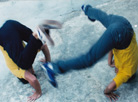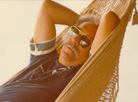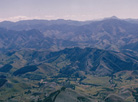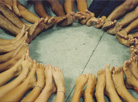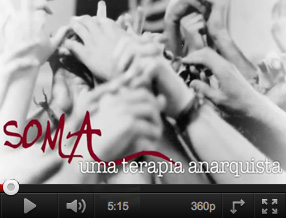“Capoeira angola, mandinga de escravo em ânsia da liberdade. Seu princípio não tem método e o seu fim é inconcebível ao mais sábio capoeirista. Capoeira é amorosa, não é perversa. Ela é um hábito cortês que criamos dentro de nós, uma coisa vagabunda.” Vicente Ferreira Pastinha or Mestre Pastinha
Capoeira Angola is the traditional style of Capoeira, Afro-Brazilian art form born to the slaves brought from Africa to Brazil and combining elements of fighting, dancing, singing, playing, music and theater. It was developed as both a celebration and a reaffirmation of cultural identity and resistance against white oppressors. The underlying bioenergetics of the attack/defense movements offers a great potential for developing coping skills in the fight against neurosis, and as such, capoeira has become a major research focus of Soma. This rich blend of skills has created such a fascinating merge of mind/body experiences that is it has increasingly become a much-researched academic topic – of which João da Mata’s PhD thesis, Corpo e Psicologia – a capoeira angola como instrumento terapêutico e de resistência (‘Psychology and the Body – capoeira angola as both a therapeutic and a resistance tool ‘) is a fine example. Mata has also published a book on capoeira and Soma, A Liberdade do Corpo – Soma, capoeira angola e anarquismo.
At Soma, we have been researching the therapeutic effectiveness of capoeira angolana in the last 20 years. In this process, we realized the strong role capoeira angolana played in the fight against slavery, using it politically as a rebellious and unifying identity reaffirmation. We have used the movements, chants, and dance of capoeira in our therapeutic sessions. Participants discuss the perceptions and sensations gathered from their practice and these are later fed into the overall therapy.
The creation of Soma mimics to some extent the context of the opressed slaves, as it was born during the bleak years (the 60’s and 70’s) of the military dictatorship in Brazil. Opponents to the regime were imprisoned, tortured, killed or banned from the country. Soma was a space of freedom in the military – imposed authoritarian society;
Under the current neoliberal democracy, control is at the same time more subtle and pervasive, more complex and refined – but equally dangerous as to the freedom of society and individuals. Slavery and dictatorship have been replaced by new authoritarian strategies, which are harder to fight, as thy have been perversely built upon sabotaging critical thinking and self-empowerment, forging docile and passive individuals.
This domestication of humans beings starts at childhood, extending itself towards adolescence and adulthood, breeding lethargic ad easy-to-please individuals. The uncritical and alienated home and school pedagogy of today generated submissive, obedient, and individualistic adults.
Soma and capoeira share the concept of the centrality of the body to counteract oppression. The slaves – treated as mere commodities, owned by their purchaser to be serve them until worn out or dead – used their bodies to fight their imprisonment. Reclaiming their identity through the body was a crucial factor in the fight against slavery. Likewise, Soma aims at fighting the new forms of slavery by freeing the bodies of participants from the authoritarian grip of neoliberal capitalism.
(Excerpt from “A Liberdade do Corpo”, by João da Mata, Imaginário Publisher)
